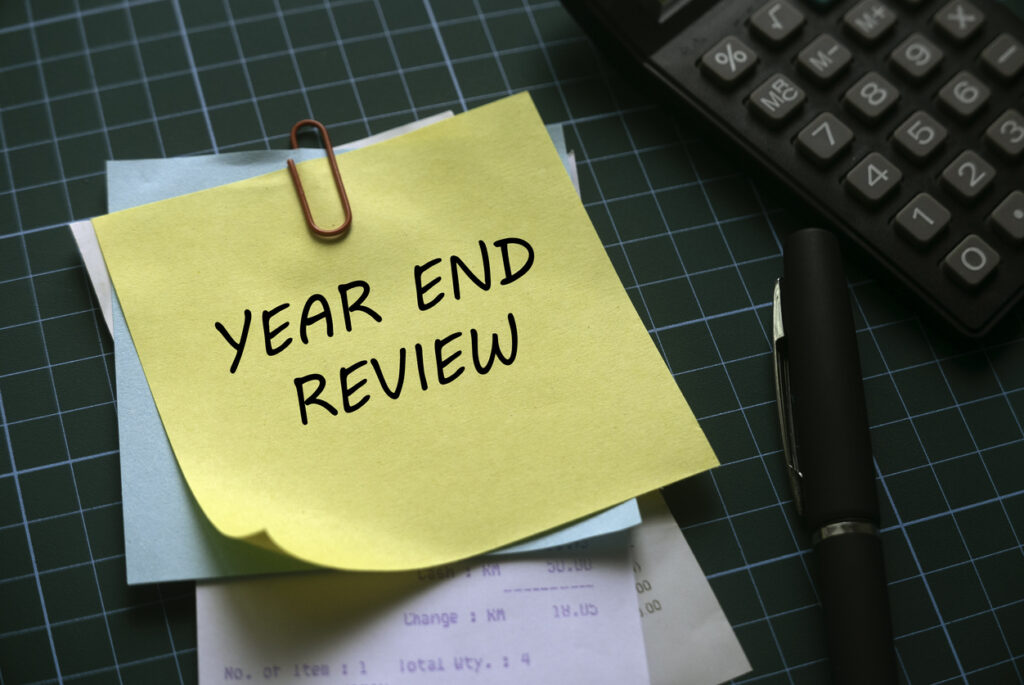Undoubtedly, this year has been a busy and challenging one for anyone working in HR; from policy changes to employee support, our function has become more valuable than ever.
Alongside HR were those working externally to support them. For professionals like me, it’s been a year of great opportunity allowing me to observe how effectively HR have been working throughout the pandemic.
This year I have spoken at more than 100 events, written more than 50 articles for HR magazines, judged four HR awards, made a few “influencer” lists, and even had my work featured in Forbes and The Sun. But the most important and rewarding work I did was the time spent consulting with almost 100 employers on how we create better wellbeing and employee experiences.
In just two years, HR has become increasingly strategic and critical to an organisation’s progression and most importantly, to the employee experience
I don’t tell you all this to rodomontade (a new word I recently learned), but hopefully to contextualise my year in review, and how rounded it is based on not just the customers I work with, but the research and writing I’ve completed and the many conversations I’ve had with HR leaders.
In just two years, HR has become increasingly strategic and critical to an organisation’s progression and most importantly, to the employee experience. From payroll, employee relations and HR risk to MI, Reward or HR generalists, there has never been more focus on HR’s role and its influence across modern organisations. Here are four of my top observations this year:
1. The Role of HR is changing – rapidly
Top-down approaches drive compliance, not commitment. HR directors have started to see and understand their new role in improving company culture; identifying differences in employee experiences and values across the organisation, so that change can be made relevant for each person.
The ROI of HR is no longer driven by simple metrics like turnover and absence, but by rising healthcare costs, growing presenteeism, culture change, employee experience challenges, CSR, and DE&I strategies. There is now a much stronger case for the economics of morale, culture, poor health, employee development, and inclusion that HR must embrace. Three quarters of respondents to a survey said that a “return on experience” will emerge as a new measure of success within HR teams.
We live in a world where employees are demanding more, and employers are having to offer more compelling employee experiences. There is now the recognition that reward, and benefits (especially things like sick pay) have become ethical, social and Governance issues. These new perspectives and changing demands from employees and society, mean the HR function is not a cost centre to be reduced, but actually a very large driver of performance.
If organisations want to truly invest in the resilience of their businesses, they must invest in the resilience of their people by addressing critical issues that affect their health, work communities, their economic stability, and their development. This year we have seen HR do this by stepping up further to support their organisation in tackling systemic challenges such as racism, misogyny, low wages, and poor mental health.
The most talented and sought-after employees have already identified that they want to work for an employer that supports and takes care of them. HR must respond by making sure employee wellbeing and the ways we support people become a pivotal part of the employee experience.
2. Employee-centred people strategies are winning
In Benefex’s New Reward Director research this year, a massive 96 per cent of HR leaders said that the employee experience is now more important than last year. The pandemic fundamentally changed HR and there was an obvious and widespread movement towards treating employees more fairly to bridge inequalities, offer more sustainable options and better support their lives.
In the middle of 2021, Edelman surveyed 17,000 people across 14 countries and asked them who they thought the most important stakeholder in an organisation was. Historically, this ranking was reserved entirely for customers, or shareholders and investors. However, for the first time ever this year, 40 per cent of people ranked employees as the most important stakeholder group, while just 12 per cent said shareholders.
This employee centred view was the continuation of a trend from 2019 that saw 200 global CEOs (including Apple, Pepsi and Walmart) issuing a joint statement on the “purpose of corporation” arguing that shareholders were no longer the primary interest, but instead that employees were (alongside the environment and their suppliers).
Surprisingly, this was a sentiment that appeared to be shared by investors this year too. Back at the start of the year, 94 per cent of 600 US investors said that they want to see evidence that a company is looking after its people before they will invest. While this represents a significant change in investor attitudes, it is mirroring a change in consumer behaviour too. Three quarters of global consumers now say they must be able to trust a brand to do what is right by their people.
As we enter 2022, I believe that HR will need to demonstrate how this function supports an organisations’ sustainability goals
Back in 2019, I predicted that organisations would soon begin to better understand employee centric people strategies. What I couldn’t predict then was that the arrival of a pandemic would accelerate that thinking. It is now understood by every successful organisation that people have a direct link to their success or failure.
Where previous strategies were designed for the organisation with a purely transactional focus on the employee/employer relationship, new people strategies are designed around the idea that a well-established human capital framework is a better investment for creating long term value.

Despite significant changes in sustainability, the ‘Social’ side of Ethical, Social and Governance (ESG), is proving difficult for many organisations to grasp – especially when societal and consumer demand is saying they must act more quickly to support their people.
Broadly, ESG is an evaluation of an organisation’s collective consciousness for social and environmental factors. It covers every touch point we have with our employees, customers, and suppliers. The ‘S’ refers to several ways an organisation creates more people centred strategies including.
-
How we build more motivated, productive, and skilled cultures
-
How we manage relationships with our people
-
How we look after the health and happiness of our people
-
How we ensure we include, not exclude people from our organisation
-
How we support the lives of the people we employ
As we enter 2022, I believe that HR will need to demonstrate how this function supports an organisations’ sustainability goals. The ways in which we develop, encourage, and care for our people will play a pivotal role in any employer’s commitment to being more sustainable as there are very strong links between our wellbeing, sustainability, and prosperity.
3. Employers are becoming more discerning with employee wellbeing
Understandably, the top driver of employee engagement in 2021 was wellbeing. It became a core metric of how we engage people and measure the success of our organisations. Around 20 per cent of the workforce say they experience poor mental health for the first time ever and an alarming 79 per cent of UK employees say they have experienced burnout, with more than a third reporting high or extreme levels.
The complexity of workplace wellbeing this year has been fuelling employers to take a more evidence-based approach. Throughout 2021, while employers grappled with wellbeing, evidence continued to emerge that looked at the effectiveness of many popular interventions that exist in this unregulated market.
New evidence suggested that many mental health apps (including those endorsed by the NHS) are ineffective, while the 2,500 different regulations, standards and best practices that could apply to mental health apps are unknown to many working in HR. The evidence concluded that no one type of intervention is more effective than another at improving the mental health and wellbeing of employees.
New people strategies should be designed to support the building of an environment where employees are encouraged to prioritise their own wellbeing and self-care
The commodification of wellbeing has led us all to think we can buy our way out of stress. A massage or going on holiday provides temporary relief, but unless we are changing the way we work, the stressor will be waiting for us on our return. What we have witnessed this year is HR teams making more concerted efforts to consider wellbeing as being rooted in the workplace cultures we create, the experiences we deliver and the general way in which we treat employees.
This is in opposition to offering a ‘collection of things’ towards a more strategic wellbeing offering designed around changing employee behaviour and a balanced view of short term responsive and long-term preventative measures. A combination of how employees are treated, how managers are trained, the benefits we offer, the structure of our organisations and how we support the lives of our people outside of work.
Almost 80 per cent of HR leaders told me that employee wellbeing was the most important element of the employee experience. Yet only one in six respondents to our survey rated themselves as ‘progressive’ using the global wellbeing matrix I designed in conjunction with the government-backed Engage for Success. In 56 per cent of employers, there is no wellbeing strategy in place at all. I think more and more HR teams will formalise their approaches to employee wellbeing.
New people strategies should be designed to support the building of an environment where employees are encouraged to prioritise their own wellbeing and self-care. As its criticalness to the future of any organisation grows, by owning wellbeing, HR teams may start to overcome some of the historic challenges with collaboration and budgets.
[embed-slice:10]
4. An employee benefits renaissance
The pandemic saw business leaders and the wider HR function embrace the important role that employee benefits play in wellbeing and delivered a very clear “we care about you” message to employees.
Benefex’s New Reward Director research found that benefits were being used more strategically to attract and retain staff as they entered ‘The Great Resignation’. Almost 80 per cent of global employers say that candidates were negotiating more on their benefits packages and demanding more choice.
The research also found that employees were selecting more benefits than ever and engaging more in their benefit schemes. This led nearly a third of employers to increase their benefit spend by more than 20 per cent.
For a long time, the HR function was seen as a controlling entity, focused on delivering the will of the organisation
Over the last year, a growing body of evidence has been supporting just how strategic employee benefits are to a successful organisation; they attract a bigger pool of candidates and can be adjusted to attract certain types of employees, supporting wider diversity and inclusion policies. Academic evidence from the last few years has shown that employee benefits are:
-
Positively associated with employee work attitudes and commitment
-
A major factor that impacts work motivation
-
Correlating with employee productivity
-
Retaining more employees
Employee benefits have also been used this year to deliver work life balance messages, support wider sustainability and CSR activities and have begun to play a large part in the employer brand.
The future is bright
I was told recently that there is an “optimistic tone” through my writing – and for good reason. For a long time, the HR function was seen as a controlling entity, focused on delivering the will of the organisation. A function that was once entirely governed by rules and driven by cost but now has a much more strategic and important seat at the table.
The challenge to HR is how we help them to move away from the admin, cost restrictions and firefighting they say has been holding them back so that they can truly embrace their more evolved role as drivers of organisational success. I think 2022 will be the year for HR to shine like never before. And how lucky you are to be working in this industry at this time.
Interested in this topic? Read HRZone.com’s report on The State of HR in 2021.
[cm_form form_id=’cm_65a14c3f5da64′]










